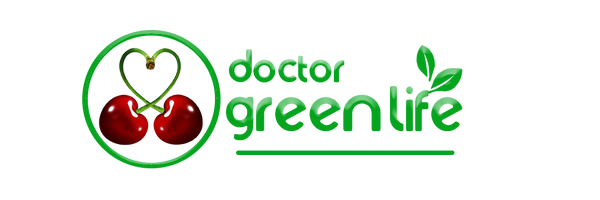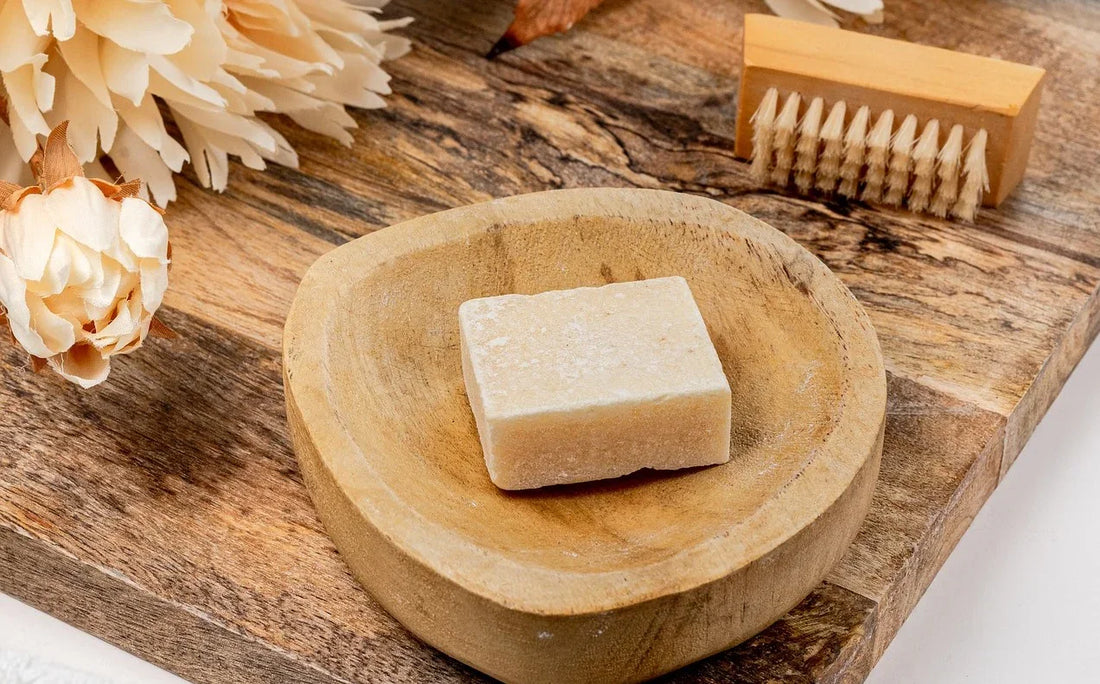Read about the benefits and properties that herbal soaps offer for the body and skin.
Herbal Soaps
What are the ingredients of natural soaps? High-quality organic soaps are made with organic oils, grade 1 plant oils, pure essential oils, wild and organic herbs and other natural ingredients such as castor oil, almond oil, aloe vera, and vitamin E.
Herbal soaps are organic products made with plants and natural ingredients, beneficial for healthier skin. These soaps have less harmful effects on the skin. Many people complain about dry skin after using regular soap, but herbal soaps use the properties of plant-based and natural ingredients to address this issue.
If you're unsure about what herbal soap is, its benefits, and its types, stay with us until the end of this article.
The first concrete evidence we have of soap-like substance is dated around 2800 BC. During that time, the Romans concocted a mixture using rainwater, animal fats, and coal ash, possessing disinfectant and cleansing properties. These soaps were employed for tasks such as removing grease stains, laundering, hand hygiene, and overall cleanliness.
Over time, additional ingredients were incorporated into this mixture, evolving herbal soaps into their contemporary form. Nowadays, the use of soaps extends beyond hand and face cleansing, finding applications in various areas such as cosmetics and personal care products, hygiene product manufacturing, textile dyeing, and even plastic production.
Today, the primary reason for using ash in the production of ancient herbal soaps has been identified. This alkaline substance contains sodium carbonate and exhibits cleansing properties when combined with specific fats.
Although modern soaps no longer use ashes, fats and sodium carbonate or their substitutes are still evident in soap formulations.
To craft soap naturally using ash, grab a handful of charcoal ash, blend it with water in a container, and use the mixture to wash your utensils. Alternatively, sprinkle ash on soaked utensils and scrub with a cloth. You'll undoubtedly be impressed by the cleansing prowess of ash.
These soaps are entirely free from chemicals and preservatives, instead featuring natural oils such as almond oil, castor oil, argan oil, olive oil, coconut oil, vitamin E, aloe vera, and more.
For this reason, not only do they not have any side effects or harm to the skin, but they are also highly beneficial for the skin. Depending on the ingredients used in each herbal soap, its properties will vary.
Herbal soaps are crafted with the assistance of plants and natural ingredients that are beneficial for the skin, with a lower likelihood of adverse effects.

Benefits that herbal soaps offer to the skin
- Reducing the absorption of toxins through the skin
- Whitening and brightening
- Deep skin cleansing
- Protecting the skin from chemicals
- Containing natural ingredients and plant oils
- Smoothing, rejuvenating, and reducing wrinkles
- Retaining moisture and preventing skin dryness
- Non-sensitizing
- Strengthening and nourishing the skin
- Helping alleviate skin conditions such as spots, pimples, and acne
- Improving overall skin health
- Regulating the skin's pH
- Eco-friendly
- Highly versatile and suitable for various preferences.
- Another benefit of these cleansers is the reduction of skin inflammations. Issues like skin redness, dryness, and swelling can be alleviated by using these cleansers.
- Additionally, the incorporation of herbal extracts imparts a pleasant fragrance to these cleansers, providing a delightful scent to your body.
- Moreover, these products gently exfoliate the skin, contributing to a vibrant, bright, and clear complexion.
Herbal soaps are suitable for various skin types.
Individuals with sensitive skin can use types like lavender soap, argan soap, and olive soap to address their sensitivity.Those with normal skin can use a wide range of herbal soaps, including coffee soap, charcoal soap, white soap, aloe vera soap, turmeric soap, copper soap, pink soap, and more.
People with combination skin can benefit from soaps like rose and clay soap, aloe vera soap, turmeric soap, zinc oxide soap with whitening properties, and others.
People with oily skin can use soaps such as pink and clay soap, charcoal soap, coffee soap, white soap, and others.
Those with dry skin can benefit from copper soap, lemon-glycerin soap, aloe vera soap, lavender soap, and more.

Differences Between Non-Herbal and Herbal Soaps
The main difference between non-herbal and herbal soaps lies in the use of plant-based and natural oils, as indicated by their names.The fundamental and base ingredient is common to both. When a specific number of plant-based oils is added to this base, it is termed as herbal soap. This seemingly simple addition introduces new properties and benefits to the final product.
- Many chemical soaps are not actually soaps but rather synthetic detergents. Synthetic detergents emerged in Germany in 1916, and the chemical soap we know today originated during World War II. Synthetic detergents are artificial cleansers, often oil-based, that strip your skin of the plant-based oils essential for healthy skin, potentially leading to skin disorders and breakouts.
- Many chemical soaps contain additives such as colorants, fragrances, foaming agents, preservatives, and other substances. These additives can harm our sensitive skin and hair and may contaminate our drinking water.
- Unlike natural herbal soaps, artificial detergents include synthetic derivatives, human-made hardening agents, chemical additives for product preservation and enhancement, and chemical foaming agents and artificial fragrances.
While herbal soaps are crafted from a variety of plant-based materials such as plant oils (olive, coconut, palm), detergents contain sulfates, sulfonate group, or chemical compounds like propylene (derived from petroleum), for example, chemicals such as sodium lauryl sulfate, sodium ethonate, tetrasodium etidronate, sodium lauroyl isethionate, or cocamidopropyl betaine.
These chemical additives can disrupt hormonal balance, be irritating to the skin, penetrate our bloodstream, induce physical changes in the body, and even lead to cancer. And eventually, they enter our water sources, having a negative impact on our environment.
Herbal soaps, on the contrary, are made from ingredients recognized by your body, providing benefits without harming the environment. Some may worry about the use of sodium hydroxide in herbal soap production. However, unlike detergents' chemicals, post-herbal soap-making, no fats remain, as they combine with fats to form a substance called a salt of a fatty acid.
For instance, when sodium hydroxide reacts with olive oil, it produces a harmless substance known as sodium oleate.
Research on the use of detergents (soaps)
The World Health Organization (WHO) released a report indicating a surge in globally incurable bacterial infections, attributing it to the widespread use of antibacterial gels (Antibacterial gels are potent cleansers and disinfectants).
Independent emphasized that some common viruses have mutated and evolved into drug-resistant versions, making their eradication or control more challenging.
According to Dr. Robynne Chutkan, who founded the Digestive Center for Women in Chevy Chase, Maryland, the soaps we use actually expose us to harmful bacteria and viruses, while making us more likely to get acne. Basically, everything we thought we knew about staying clean is a lie. Sort of.
"By scouring ourselves in the shower every day, we are actually stripping our skin of bacteria that keep us acne-and eczema-free," Chutkan told Time. Additionally, she says that by removing bacteria from our bodies, it makes our immune systems less likely to be able to differentiate between good and bad bacteria.
Additionally, on most days, even after significant physical activity and sweating, rinsing the body with water is sufficient, and there is no need for soap. Dust and dirt don't cause illness, but frequent removal of beneficial skin bacteria may harm the immune system. However, during flu and cold seasons, individuals should exercise extra caution and regularly wash their hands with warm water and soap.
Antibacterial agents like triclosan, found in cosmetics, lotions, acne creams, toys, and toothpaste, pose significant health risks. According to Oxford University Press (OUP), experiments revealed that 76% of liquid hand soaps and 29% of bar soaps contained triclosan.
The American Chemical Society (ACS) stated, "We found triclosan in all of the urine samples from the pregnant women that we screened. We also detected it in about half of the umbilical cord blood samples we took, which means it transfers to fetuses. Triclocarban was also in many of the samples."
Recent studies indicate that significant amounts of toxins are absorbed through the human skin, the largest organ of the body. Healthy Lifestyle choices such as drinking purified water or consuming healthy food are not sufficient to eliminate harmful toxins from your body.
Using herbal soaps can minimize the absorption of toxins through the skin. Using natural and organic skincare products like herbal soap is crucial as your skin, being the largest organ, deserves your best care.

The Bottom Line
Commercial bar soaps generally are produced on a large scale with harsh chemicals, synthetic ingredients, and cheap perfumes or fragrances which all can cause irritation to your skin.
In contrast, herbal soaps serve as a suitable and gentler alternatives.
People nowadays are more inclined towards a healthy lifestyle, incorporating comprehensive exercises and fitness regimens, as well as opting for better nutrition by choosing organic foods and tailoring dietary plans to individual body metabolism.
These days, more individuals are taking steps toward a healthier lifestyle, and one of the crucial measures in this regard includes selecting suitable products for skincare.
Informed consumers often opt for natural and high-quality herbal soaps over chemically produced alternatives because these herbal soaps are made with:
- Better-quality ingredients,
- Are less irritating to the skin,
- Contain higher levels of vitamins, antioxidants, and nourishing elements beneficial for the skin,
- Natural soap making uses biodegradable ingredients that are friendly to the environment. These ingredients come from natural sources, such as plants, flowers, herbs, and essential oils. Biodegradable ingredients are easily broken down by natural processes, so they do not contribute to pollution or harm aquatic life.
External Sources
- Could Using Soap During Flu Season Actually Make You Sicker?
- The Antimicrobial Assessment of Some Herbal Soap
Did you find this article helpful? Share your thoughts and leave a review below!



